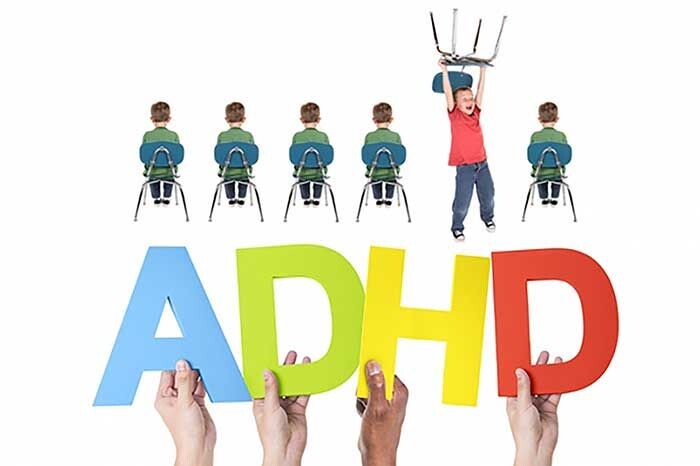Did you know that ADHD is now classified as a hyperactive disorder? This means that people who are diagnosed with ADHD now have one of the three types of ADHD: predominantly inattentive, predominantly hyperactive-impulsive, or combined. In this blog post, we will discuss what you need to know about hyperactive ADHD and how it affects people’s lives. We will also provide information on treatment options and strategies for managing this condition.
Contents
Defining Hyperactive ADHD
ADHD is a condition that is characterized by problems with focus, hyperactivity, and impulsiveness. ADHD affects people of all ages, but it is most commonly diagnosed in children. It is estimated that between five and ten percent of school-aged children have ADHD.
Hyperactive ADHD is a type of ADHD that is characterized by problems with focus, hyperactivity, and impulsiveness. People with this condition may have difficulty paying attention, sitting still, or controlling their impulses. They may also be easily distracted, feel restless, and have trouble completing tasks.
Hyperactivity and impulsiveness are the two most distinguishing symptoms of hyperactive ADHD. People with this condition are constantly moving, fidgeting, and talking excessively. They may also have difficulty sitting still, controlling their impulses, and speaking without thinking first.
Hyperactive ADHD affects people of all ages but is most commonly diagnosed in children. It is estimated that between five and ten percent of school-aged children have this condition. Boys are more likely to be diagnosed with hyperactive ADHD than girls.
Types of ADHD
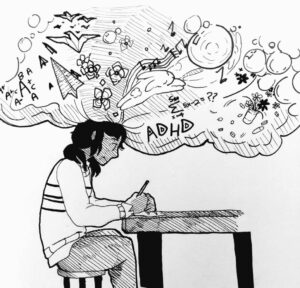
As we mentioned earlier, there are three types of ADHD. The type of ADHD a person has will affect the symptoms they experience and how the condition affects their life.
Predominantly inattentive ADHD
It is the most common type of ADHD. People with this type of ADHD may have difficulty paying attention, following instructions, and completing tasks. They may also be easily distracted, daydream, and forget things often. This type of ADHD is more common in girls than boys.
Predominantly hyperactive-impulsive ADHD
This is less common than the other types of ADHD. People with this type of ADHD may have difficulty sitting still, controlling their impulses, and speaking without thinking first. They may also be constantly moving, fidgeting, and talking excessively. This type of ADHD is more common in boys than girls.
Combined hyperactive-impulsive and inattentive ADHD
This is the most severe type of ADHD. People with this type of ADHD experience all the symptoms of the other two types of ADHD. They may have difficulty paying attention, controlling their impulses, and sitting still. They may also be easily distracted, forgetful, and constantly moving. This type of ADHD is equally common in boys and girls.
What Causes Hyperactive ADHD?
The exact cause of ADHD is unknown, but it is believed to be caused by a combination of genetic and environmental factors. Researchers have found that ADHD runs in families, so there is likely a genetic component to this condition. Environmental factors such as exposure to toxins or stress may also play a role in the development of ADHD.
Symptoms
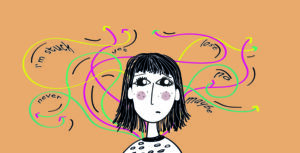
Although ADHD symptoms are not concretely specific to any one type, here are some more common signs of hyperactive ADHD.
It is important to remember that everyone experiences ADHD differently, so not all of these symptoms will be present in every person with this condition.
- Constantly moving, fidgeting, or squirming
- Difficulty sitting still for long periods of time
- Excessive talking
- Speaking without thinking
- Poor concentration
- Temper tantrums
- Hypersensitivity
- Talking loudly
- Hard time following rules
- Low attention span
- Disorganization
- Low awareness of surroundings
- Difficulty waiting their turn or taking turns
- Interrupting others often
- Trouble completing tasks
- Difficulty controlling emotions
Effects
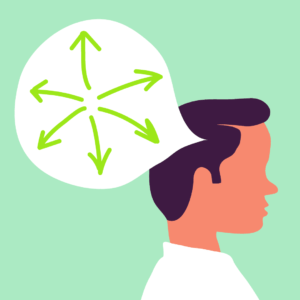
Hyperactive ADHD can have a significant impact on a person’s life. The symptoms of this condition can interfere with school, work, and social relationships. People with ADHD may also have difficulty completing tasks, following rules, and staying organized. This can lead to problems at home, school, or work. They may also have difficulty maintaining relationships, keeping a job, or completing school.
People with hyperactive ADHD may also experience other mental health conditions such as anxiety, sleep disorders, depression as well as epilepsy. These conditions can make the symptoms of ADHD worse and make it more difficult for people to manage their condition.
Treatment Options
Life with ADHD can be challenging, but there are treatments available that can help you manage your symptoms and live a happy and successful life. With the right support, people with ADHD can accomplish anything they set their minds to.
Medication
Taking psychiatric drugs is the most common treatment for ADHD. Stimulant medications such as methylphenidate and amphetamines are often prescribed to help people with ADHD improve their focus and concentration. Non-stimulant medications such as bupropion and atomoxetine may also be used to treat ADHD.
It becomes necessary to follow up with a legal prescription from a licensed practitioner. They can also help you monitor the efficacy, side effects, and benefits of the medicine to your condition.
Therapy
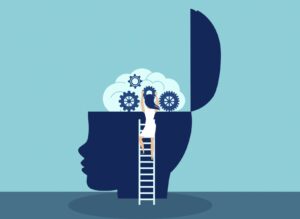
Psychotherapy, or counseling, can help people with ADHD learn how to manage their symptoms.
Cognitive-behavioral therapy (CBT) is a type of therapy that can be particularly helpful for people with ADHD. This form of therapy helps people with ADHD identify and change negative thinking and behavior patterns.
Parents of children with hyperactive ADHD may need to adjust their parenting style to fit their child’s needs through Parenting and School Accommodations. They may also need to advocate for their child at school, in order to ensure that they are receiving the accommodations they need to succeed.
Some children with hyperactive ADHD may benefit from having an Individualized Education Program (IEP). These plans provide children with specific accommodations and services that they need in order to succeed in school.
Self Help Tips
There are a few things that you can do to help manage your ADHD symptoms:
- Get organized: Make sure to keep track of important dates, deadlines, and appointments in a planner. You can also use a daily or weekly to-do list to help you stay on top of your responsibilities.
- Set limits for yourself: It can be easy to overcommit yourself when you have ADHD. Be realistic about how much you can handle and make sure to only take on as much as you can realistically handle.
- Make time for relaxation: Taking some time out of your day to relax and de-stress can help improve your focus and concentration. Try taking a few minutes each day to do some deep breathing exercises or meditation.
- Exercise regularly: Exercise is an effective treatment for ADHD. Taking some time out of your day to get moving can help improve your symptoms.
- Eat a healthy diet: Eating nutritious foods can help improve ADHD symptoms. Be sure to include plenty of fruits, vegetables, and whole grains in your diet.
- Get enough sleep: People with ADHD often have difficulty sleeping. Be sure to get enough rest by going to bed and waking up at the same time each day. Avoid caffeine and screens before bedtime.
- Take breaks: When you’re feeling overwhelmed, take a break to relax and rejuvenate. Get up and move around, or take a few minutes to yourself to clear your head.
Conclusion
If you or someone you know has hyperactive ADHD, it’s important to seek out the help of a professional. With the right treatment plan, people with hyperactive ADHD can learn to manage their symptoms and lead happy and successful lives. There is no one-size-fits-all solution for managing hyperactive ADHD, but with the right treatment plan, you can learn to manage your symptoms and live a happy and successful life.
For more information, please contact MantraCare. ADHD is a neurodevelopmental disorder characterized by difficulty in paying attention, hyperactivity, and impulsivity. If you have any queries regarding Online ADHD Counseling experienced therapists at MantraCare can help: Book a trial ADHD therapy session
